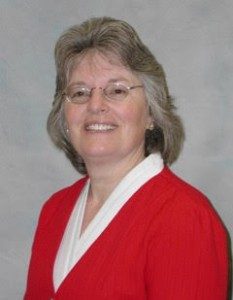Putting Knowledge to Work with Personalized Learning Plans for Competencies Tied to OER
CompetencyWorks Blog

Innovation in CBE practice requires new thinking about program structures, delivery modes, faculty roles, use of competency frameworks, adaptive learning, and term/non-term-based subscription, to mention a few large components of emerging practice. At the CB Exchange conference in October, Public Agenda unveiled research supported by the Bill and Melinda Gates Foundation and the Competency-Based Education Network (C-BEN) about “Ten Shared Design Elements” in thriving CBE programs. These findings will help practitioners map their efforts along the continuum of CBE offerings in higher education. Our recent experience at Lord Fairfax Community College (LFCC) in linking competency-based learning with OER to create personalized learning plans has identified other assumptions about CBE that are important to think about in designing programs:
- First, are models course-based? Are we converting traditional courses into CBE modules, including sets of learning outcomes framed in the language of competencies and delivered through enrollment in traditional classes? Or, are models focused primarily on leveraging learning resources without a course “shell” as a placeholder? Both approaches to implementing competencies within curricula may incorporate a learning management system and have similar assessments, rubrics, criteria for success, and the storage and use of artifacts; but their focus and purpose are very different.
- A second dimension is whether models are still tied to counting credit hours, with grades and other traditional qualitative measures of academic success. Or, are they direct assessment, relying solely on verifying the attainment of program competencies, without regard to credits, in order for students to earn a credential/award?
- Finally, what is the degree of personalization? Are students simply moving through competencies at their own pace; or is there software that helps them not simply see their progress but assists their efforts to select learning material from an array of OER which, in turn more fully match their needs and interests? Furthermore, are students empowered to pick among different OER and learning materials based on cost, delivery mode, and level?

Many CBE efforts are course-based, counting credits and averaging grades, and are only minimally personalizeable. LFCC is taking a very different approach to CBE. The college received a $3.25 million TAACCCT grant in October 2014 from the U.S. Department of Labor to develop “Knowledge to Work” or K2W. The fourth round of TAACCCT grants specifically encouraged institutions to use competency frameworks, make programs more affordable, promote accelerated learning, incorporate prior learning assessment, contextualize developmental education, and use open educational resources (OER). LFCC responded to this call, creating a non-course based, direct assessment CBE model that provides a high degree of personalization and customization.
K2W’s CBE programs offer flexible, self-paced degrees and certificates in high growth, high wage industries, including information technology, health information management, and advanced manufacturing. Instead of counting credits, the focus is on attaining and verifying competencies. Leading employers in the region help ensure that program competencies are aligned with changing job requirements, making graduates more employable. Faculty work individually with students to create personalized learning plans tied to competencies, using free and low-cost digital resources wherever possible. Career coaches provide wrap-around student support. A Workforce Navigator works closely with employer partners in the region, promoting the use of competencies in hiring and professional development. Microsoft and the American Health Information Management Association serve as national partners on the grant.
K2W intends to reduce the time to completion in a much more affordable and personalized process that increases retention and eliminates many of the barriers that exist in traditional higher education. It ties enrollment directly to jobs in the college’s service region and nationally. K2W embraces the continuum of educational needs, providing adult basic education, digital literacy, and developmental education if needed, serving adult learners re-entering the workforce (especially TAA-affected workers and veterans), and helping employees become more marketable.
An LFCC Faculty Direct Assessment Committee worked for the past year to develop program competencies that are based on program student learning outcomes; but, more importantly, aligning all competencies with national competency frameworks. These include the Association for Computing Machinery’s Committee for Computing Education in Community Colleges, the American Health Information Management Association, and the International Association of Administrative Professionals. Competencies from the National Center for Construction Education and Research were also identified for trade apprenticeship programs in plumbing, electrical, and HVAC, to be delivered with personalized learning plans and OER such as LearnMate.
Seven existing programs were transformed into direct assessment CBE based on these national frameworks, including Associate of Applied Science degrees in Health Information Management and Information Systems Technology; the Certificate in Office Systems Assistant; and Career Studies Certificates in Cyber Security, Networking Specialist, Hospital Facility Coding, and Information Processing Technician.
LFCC received regional accreditation approval from the Southern Association of Colleges and Schools Commission on Colleges (SACSCOC) in July, 2015 to offer these seven programs through direct assessment CBE, the first institution in the SACSCOC region to be so approved. Enrollment in personalized learning plans started in September.
LFCC has also submitted a proposal to the U.S. Department of Education requesting approval to offer Title IV financial aid for these direct assessment CBE programs, something only seven institutions (and no community colleges) currently offer. One key requirement of Title IV eligibility for direct assessment is ensuring that programs are not simply correspondence-based. LFCC designed its program model with the regulatory environment in mind. In creating a personalized learning plan, faculty and students work together to define weekly momentum points that help students stay on track. Semester milestones are set for the beginning, middle, and end of an enrollment session to ensure that students are prepared for their competency work, that they are progressing as expected, and that they met their personal learning goals. These mini-evaluations help students through a kind of personalized project management. They also serve as data points for documenting regular and substantive interaction with faculty.
LFCC has benefitted in important ways from being part of C-BEN, as well as participation in the CBE4CC effort of Western Governor’s University, the U.S. Department of Labor, and the Gates and Lumina foundations to promote CBE at community colleges. Invited to participate on several IMS Global workgroups, K2W staff evaluated information for a new CBE record data standard using the Common Education Data Standards. The college is also an early adopter of the new extended transcript (ET) model facilitated by C-BEN, IMS Global, AACRAO, Educause, and other organizations. The Community College Consortium for Open Educational Resources has also been of great help to K2W as it leverages a wide range of digital learning material and maps OER to competencies.
To verify competency attainment, the Faculty Direct Assessment Committee identified numerous direct assessment methods, including projects, exams, quizzes, and simulations. Rubrics are used to evaluate success. All program competencies must be met and verified at the 80% level or higher. Assessments and assignments are stored as artifacts. Linked In, with its features for user profiles and job search, will be used as a basic learner portfolio, since getting a high wage job in a high growth industry is a key goal of TAACCCT in the first place. Prior learning is not evaluated in terms of credits per se, but through direct assessment of competencies. A course equivalency table maps competencies to courses, review of military job codes and educational experience, and nationally recognized credentialing exams.
K2W is completing its first-year TAACCCT evaluation with Rick Voorhees, CBE visionary and editor of the 2001 classic Measuring What Matters: Competency-Based Learning Models in Higher Education. Voorhees reports that this shared vision of personalized learning plans tied to competencies using free/low-cost OER is transforming the institution. While LFCC has benefitted greatly from the TAACCCT grant and has strong commitment and involvement from college leadership, this effort is not without myriad issues that have been difficult to resolve about data systems and policies. LFCC is part of the Virginia Community College System and relies on it for its main learning management system and student information system. With TAACCCT funding, the College built an open source, shadow system for personalized learning plans and documentation of regular and substantive interaction.
Just as LFCC has been on the receiving end of so much good information, support, and encouragement from C-BEN, CBE4CC, and CB Exchange, the college looks forward to sharing its vision and lessons learned in this transformative model of direct assessment CBE. More information about this effort is provided at http://knowledgetowork.com.
See also:
- Does Competency Education Mean the Same Thing for K-12 and Higher Education?
- Regulatory Noise Stifles, Slows Rise of Competency-Based Learning
- Navigating the CBE Frontier: Managing Enrollment and Revenue Targets
Dr. John Milam is Executive Director of Knowledge to Work, Lord Fairfax Community College’s Round 4 TAACCCT grant creating direct assessment CBE programs. He has held faculty and institutional research positions at the University of Virginia, the University of Houston, West Virginia University, George Mason University, and LFCC. He also served as CEO of HigherEd.org, where he led the development of various IPEDS data applications for the U.S. Department of Education’s National Center for Education Statistics.
@johnmilam
[email protected]
(540) 868-7249
Dr. Cheryl Thompson-Stacy serves as the president of Lord Fairfax Community College since January of 2009. Prior to that, she was the president of Eastern Shore Community College in Melfa, Virginia. Her excitement and support of competency based education is long standing and she is thrilled about the opportunity to be a national leader in this innovative approach to higher education.
@wade438
[email protected]
(540) 868-7101